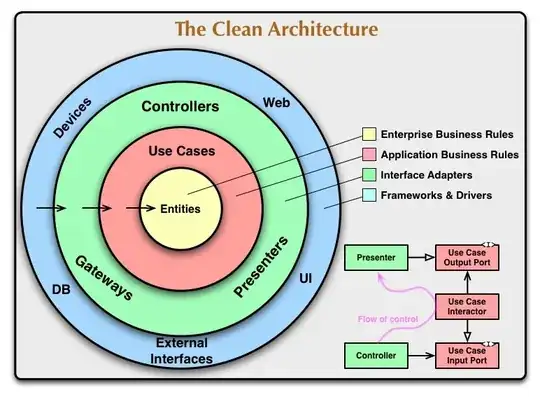From the answer to Must the use cases extend the entities in Clean Architecture? I have known that the use cases must NOT extend the entities. It's fine, but what do I have to do with the properties of entities which are depending on the application?
Very strictly speaking, these rules (note: the enterprise business rules) would make or save the business money, irrespective of whether they were implemented on a computer. They would make or save money even if they were executed manually.
The below entity is matching with this concept because each product has a title which could be written on the physical label and price:
class Product {
public title: string;
public price__dollars__withoutTax: number;
public constructor(properties: Readonly<{ title: string; price__dollars__withoutTax: number; }>) {
this.title = properties.title;
this.price__dollars__withoutTax = properties.price__dollars__withoutTax;
}
}
Unlike this, the below class has some fields which exist only inside the application - ID, createdAt__ISO86101, updatedAt__ISO86101
class Product {
public readonly ID: number = Product.generateID();
public title: string;
public price__dollars__withoutTax: number;
public createdAt__ISO86101: string;
public updatedAt__ISO86101?: string;
public constructor(properties: Readonly<{ title: string; price__dollars__withoutTax: number; }>) {
this.title = properties.title;
this.price__dollars__withoutTax = properties.price__dollars__withoutTax;
this.createdAt__ISO86101 = new Date().toISOString();
}
private static counterForID_Generating = -1;
private static generateID(): number {
Product.counterForID_Generating++;
return Product.counterForID_Generating;
}
}
How the second version of Product class should be organized in the Clean Architecture hierarchy?
